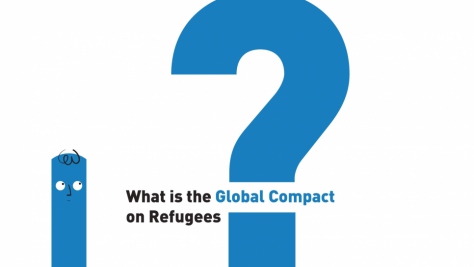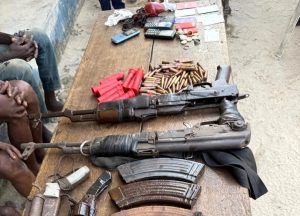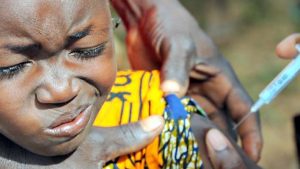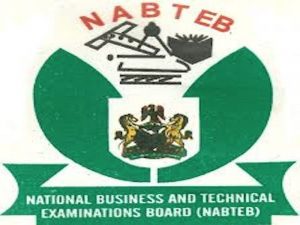Assistant Livelihoods Officer (Cross River) at the United Nations High Commissioner for Refugees (UNHCR)

United Nations High Commissioner for Refugees (UNHCR) was created in 1950, during the aftermath of the Second World War, to help millions of Europeans who had fled or lost their homes. We had three years to complete our work and then disband. Today, over 65 years later, our organization is still hard at work, protecting and assisting refugees around the world.
We are recruiting to fill the position below:
Job Title: Assistant Livelihoods Officer
Position Number: 2019/VA/042
Location: Ogoja, Cross River
Category: Livelihood
Grade: NOA
Duration of Contract: Three Months (with possible renewal)
Contract Type: Temporary Appointment
Context, Duties and Responsibilities
Operational Context:
- Since September 2017, UNHCR Nigeria has been receiving increasing number of refugees fleeing conflict in North West and South West Regions in Cameroon. In March 2018, the Government of Nigeria granted a two-years Temporary Protection Status (TPS) to all Cameroonians fleeing conflict and seeking asylum in Nigeria.
- To date 35,700 Cameroonian refugees have been registered by the government through its National Commission for Refugees, Migrants and Internally Displaced Persons (NCFRMI) with technical support from UNHCR. These refugees are hosted in border communities in four states, namely; Akwa Ibom, Benue, Cross River State and Taraba, with Cross River State hosting over 85% of the refugee population. Of this population, close to 14,000 are currently in three refugee settlements established in Anyake (soon to be relocated to Ikyogen) in Benue State, Adagom (1&2) and Okende in Cross River State respectively. Additional three settlements are currently planned and being developed in Adagom 3, Oban (Akampka) and Buya (Obanlinku) in Cross River State to facilitate relocation of refugees from urban and border communities closer to the border with Cameroon, decongest over crowdedness in existing settlements of Adagom and Okende and better serve the refugees.
- The majority of the refugees reside within local communities, many of whom wish to relocate to settlements where adequate protection and assistance can be accessed. About 50% (17,427) of the refugee population is made up of adults. A total of slightly over 7,000 reside in refugee settlements in Adagom, Okende and Anyake. These adults depend solely on Cash Based Interventions for their livelihoods, which is not sufficient to meet their basic needs. Furthermore, with funding sources becoming scarce it is better to engage the adults to utilise their skills and talents to generate income for themselves so that they become independent from relying on CBI.
- The proximity of the settlements to the host community offer several opportunities to the refugees to engage in livelihood activities to supplement their CBI support which will start to be gradually reduced in September the resources will be channelled incrementally through livelihood opportunities.
Functional Statement
Accountability:
- A percentage of the refugee population and host communities are supported to be self-reliant.
- Comprehensive livelihoods needs assessment reports are produced.
- Age, Gender and Diversity approach and community-based and participatory principles are used toassess needs and plan.
- Economic Inclusion and Livelihoods interventions are technically guided producing required impact.
- Economic Inclusion and Livelihoods partners are well-coordinated and more partners brought on board.
- Economic Inclusion and Livelihoods interventions are well monitored and required reports produced on timely basis.
- Settlement and Urban -level economic Inclusion strategies are developed and implemented.
- Network of partners with UN agencies and relevant private sectors are developed, strengthened and optimized in the Economic Inclusion cooperation and support.
- Relevant linkages are developed with the private sector to promote innovation/synergies.
Responsibility:
- Ensure the operation is within the 2019-2023 UNHCR Global Agenda for Economic Inclusion.
- Support the development and implementation of the country-specific Economic Inclusion Strategy, and advising on the design and implementation of livelihoods and economic inclusion programmes.
- Coordinate with respective stakeholders the approach for livelihoods programming that is specifically targeting refugees.
- Support the development and implementation, together with Protection and External Relations Sections, of a practical and realistic advocacy strategy on refugee livelihoods opportunities and rights.
- Explore partnerships with NGOs, Government, training institutions, employment services centres, UN agencies, and private sector.
- Work closely with and provide technical assistance to UNHCR partners implementing livelihoods programmes.
- Conduct, facilitate and support wealth ranking surveys for refugee population.
- Advocate with public and private services providers operating in the country to provide services to UNHCR persons of concerns i.e. business development services, micro-finance institutions, training institutes, banks, business incubators, poverty alleviation programmes etc.
- Support the regular sharing of livelihoods related information among different humanitarian, developmental and governmental stakeholders.
- Strengthen, guide and monitor the different livelihoods interventions under the UNHCR programme and ensure compliance with UNHCR Minimum Criteria for Livelihoods programming.
- Utilize efficient targeting techniques to graduate vulnerable refugees out of poverty.
- Design and implement, in cooperation with national government, implementing partners, and UNHCR representation office, a custom-made annual operation plan within the framework of the approved livelihoods strategy.
- Build a strong relationship with the relevant government stakeholders to enhance their ownership of the livelihoods programme initiated by UNHCR.
- Maintain close contacts with partners both in public, private and NGO sectors in order to harmonize activities relating to promotion of livelihoods activities.
- Perform other related duties as required.
Authority:
- Represent UNHCR at the appropriate level in consultations with the government offices and partners concerning the inclusion of livelihoods and local integration of refugees into their recovery and development policies and plans.
- Decide which issues identified through monitoring and consultations with refugee and partners to be raised with senior management.
Essential Minimum Qualifications
- University Degree in Development Studies (in either Development Economics, Finance Entrepreneurship, Agriculture Innovation or Management) Business Development and Management.
- At least 2 years of relevant professional experience with proven technical competencies in sub-sectors relevant to livelihoods programming e.g. microfinance, employment, entrepreneurship, private sector development, local economic development, poverty reduction, agriculture, livestock, vocational and technical education and training, etc.
- Experience in working effectively with private sector, international and national NGOs and UN organisations, and with government authorities at state and local level.
- Proficiency in computer software such as excel, word, PowerPoint.
Desirable Qualifications & Competencies:
- Postgraduate specialization in sustainable livelihoods.
- Proven experience working in an UN inter-agency context, development/multilateral organization, rural development agencies/enterprise and in nurturing partnership.
- Knowledge of donors and resource mobilization
- Experience working with farmers associations and SACCOs.
- Experience working with district authorities on planning livelihood projects.
- Knowledge of the UN system.
Application Closing Date
Midnight, 15th July, 2019.
The post Assistant Livelihoods Officer (Cross River) at the United Nations High Commissioner for Refugees (UNHCR) appeared first on Jobs in Nigeria – http://jobsinnigeria.careers.







